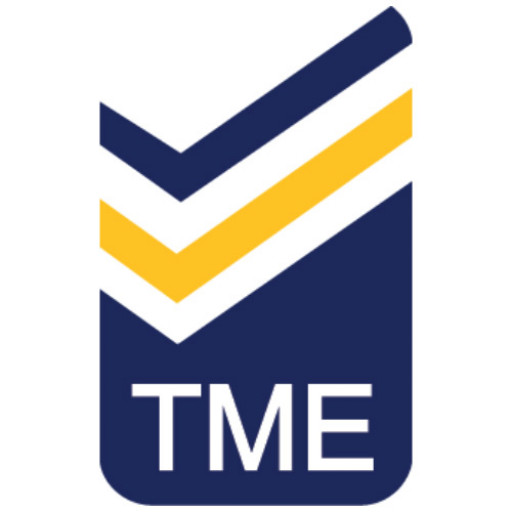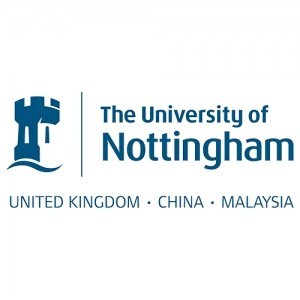Photos of university / #cambridgeuniversity
You don’t need any prior knowledge of Arabic, Chinese, Hebrew, Japanese or Persian to study them here but you do need imagination, perseverance, curiosity and a sense of adventure. You can also combine Arabic, Hebrew or Persian with a modern European language.
Broaden your horizons
Within the Asian and Middle Eastern Studies (AMES) course, the area we study stretches from Japan in the East to Morocco in the West, and from classical times to the present day. To study one of these cultures through its language is not only to develop a set of practical skills and knowledge that can be used later in many different ways, but also to engage with different ways of understanding our shared world.
We don’t require you to have studied specific subjects at school; the best preparation is for you to explore for yourself what interests you in the culture you choose to study.
Flexibility: our range of options
Our course is flexible and numerous options and combinations are available. You should indicate which language(s) you’re interested in studying in your Supplementary Application Questionnaire (SAQ) – the choice isn’t absolute and some students change direction before they start or as they progress.
- You can study Arabic, Chinese, Hebrew, Japanese or Persian.
- You can combine Arabic, Hebrew and Persian with each other, or with a modern European language (if you have an A Level/IB Higher Level or equivalent in the European language) from Year 1; or with Hindi or Sanskrit from Year 2 (no more than two languages can be studied at one time).
- Chinese and Japanese cannot be combined, with another language. However, those studying Japanese can take Korean as an option in Year 4.
Chinese gives you China in its own words. You encounter a sophisticated civilisation and the most vibrant economy in the world today. You delve into its 3,500 years of recorded history, poetry and philosophy to understand how they shaped the tumultuous changes of modern times, and to engage with contemporary society.
In Japanese, you master the spoken and written forms of modern Japanese and also get unique training in reading pre-modern Japanese. You gain a comprehensive understanding of Japan, its history, culture, politics and society, and learn about the wider East Asia region too.
Arabic is the language of the Qur’an and of a rich literature covering fields as diverse as the sciences, history and religious studies, and poetry. It’s the key to a medieval culture which kick-started the European Renaissance. Our course gives you access both to this and to the modern societies, cultures and thought fed by this heritage.
Persian is another great language of Islam with a world famous poetic tradition and vibrant literary heritage. Our course introduces you to both the classical tradition and contemporary Iranian culture.
Hebrew offers classical (Biblical) and/or modern Hebrew and its literature, and the history and culture of Israel and the modern Middle East. You can also study Aramaic.
Our teaching
Good knowledge of the language(s) is central to our course. Part I (Years 1 and 2) gives a strong grounding, and in Part II (Years 3 and 4) you study advanced language so that by the end of it you can speak fluently and read confidently. Alongside the language(s), there’s a wide range of topics on offer (depending on language), from which you can choose according to your interests – history, literature, religion, anthropology, linguistics, film.
Living and learning abroad
The third year is spent abroad – a great opportunity to immerse yourself in the culture you’re studying and improve your language skills.
Various Faculty-approved institutions are available. Chinese and Japanese students study at a university in the appropriate country. Arabic, Persian and Hebrew students have some choice of which country they go to and what they do. Students generally take an approved language course or study at a local university, and some combine this with voluntary work..
Additional course costs
Additional course costs relate to the year abroad and vary according to the destination. See the Faculty website for details about these costs:
- Chinese
- Japanese
- Arabic, Hebrew and Persian
Versatility: your choice of careers
The range of career options open to graduates is vast. Besides those who go into research, many graduates use their subject directly in subsequent employment. Examples include the media, business and commerce, tourism, teaching overseas, the Civil Service (especially the Foreign Office), NGOs, or international scientific agencies.
Even if you choose not to stay in a related field, employers are often impressed by your choice to study a difficult language. Our graduates have also gone into banking, marketing and law.
Teaching is through lectures, seminars/classes, and supervisions, and you can typically expect 12-14 hours of teaching each week. Assessment includes written and oral examinations, and coursework.
Depending on your language(s), you take four to six papers in Years 1, 2 and 4, and write a dissertation of 12,000 words in your final year. You spend Year 3 abroad.
If you combine a European language with a Middle Eastern language, you study both roughly equally in Year 1 but after that you can balance them as you wish. If you combine both to Part II, you spend Year 3 in the Middle East.
Chinese
Years 1 and 2 (Part I)
You receive intensive training in spoken and written Mandarin, as well as a grounding in reading literary and classical Chinese, and Chinese and East Asian history from ancient times to the present day.
Year 4 (Part II)
In Year 4, you write a dissertation and choose from specialist papers on topics as varied as religion, state and institutions in dynastic China, Chinese linguistics, contemporary society or literature, and war in the making of modern China.
Japanese
Years 1 and 2 (Part I)
In Year 1, you study written and spoken Japanese and take a paper on East Asia. In Year 2, you continue your language and choose from papers on Japanese history, literature, society, politics, classical Japanese, East Asian cinema, and some Chinese Studies options.
Year 4 (Part II)
Alongside your dissertation in Year 4, you choose from special papers which vary each year. Past topics include Japanese culture, history, advanced classical Japanese, and politics. There’s also a Korean language option.
Arabic and Persian
Years 1 and 2 (Part I)
You study written and spoken Arabic, and/or modern Persian, and an introduction to the contemporary Middle East and/or its history. In Year 2, you can study classical and modern literature, history, anthropology and/or Islam.
Year 4 (Part II)
In Year 4, you write a dissertation and the second-year subjects are offered again, but in more depth and specialisation (eg modern Islamist thought, Islamic Spain, travel writing).
Hebrew
Years 1 and 2 (Part I)
You’re introduced to the Hebrew language and its literature, as well as the contemporary culture of Israel and the history and culture of the Middle East. You can also take other subjects such as linguistics and Judaism.
Year 4 (Part II)
In Year 4, in addition to your dissertation, you have a range of options to choose from, such as Hebrew literature, Israeli cultural studies, Israeli cinema, comparative Semitics, Aramaic and the pre-modern and modern Middle East.
- All applicants to the University of Cambridge must submit an application to UCAS (the Universities and Colleges Admissions Service) by the relevant deadline.
- The Attestat o (polnom) Srednem Obshchem Obrazovanii (Certificate of Secondary Education) is not considered to be suitable preparation for a competitive application to the University of Cambridge. We strongly recommend that you undertake further study if you wish to apply for an undergraduate degree. Examples of the qualifications that would be considered suitable for admission to Cambridge are A Levels, the International Baccalaureate (IB), five or more Advanced Placement (AP) courses, or possibly the first year of an undergraduate degree at a university outside the UK. We recommend that you contact the College that you wish to apply to directly for further advice and guidance.
- IELTS – normally a minimum overall grade of 7.5, usually with 7.0 or above in each element.
- Cambridge English: Advanced – grade A or B.
- Cambridge English: Proficiency – grade A, B or C.
Want to improve your English level for admission?
Prepare for the program requirements with English Online by the British Council.
- ✔️ Flexible study schedule
- ✔️ Experienced teachers
- ✔️ Certificate upon completion
📘 Recommended for students with an IELTS level of 6.0 or below.
- Cambridge Commonwealth, European and International Trust
Your living expenses may be higher than for a Home student (eg if you stay in Cambridge/the UK during vacations). The minimum resources needed in Cambridge for the year (excluding tuition and College fees) are estimated to be approximately £10,080 in 2017-18 and £10,310 in 2018-19, depending on lifestyle (you should allow for increases in future years).










